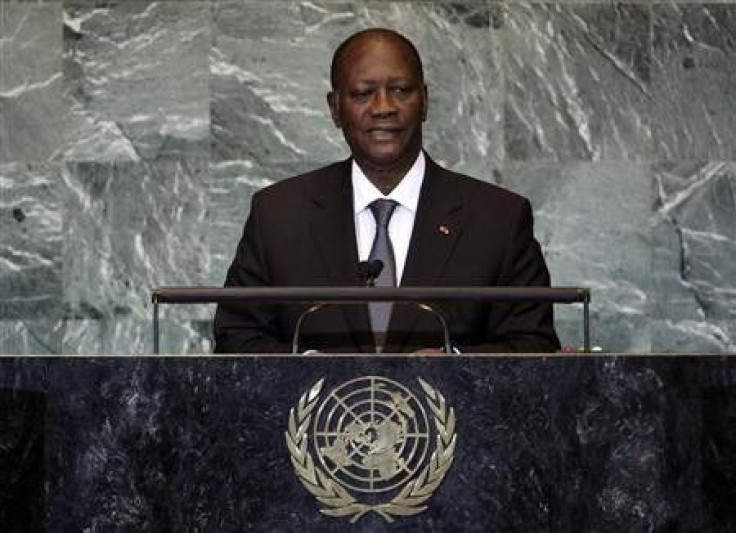Ivory Coast may Produce Half of World's Cocoa

Ivory Coast, the world's top cocoa producer, expects to raise its output this year to the point that it could account for half of the world's production, President Alassane Ouattara said on Saturday.
We produce 40 percent. Probably this year it could be 50 percent of world cocoa, Ouattara told Reuters in an interview on the sidelines of the U.N. General Assembly.
U.S. cocoa prices are at their lowest levels in a year as investors liquidate positions on fears about the weakening global economy.
Ideal growing conditions in western Africa have contributed to the International Cocoa Organization saying the 2011-2012 market could be in balance or possibly see a surplus rather than a deficit as originally forecast.
There have been concerns in Ivory Coast's western cocoa-growing regions, where there have been outbreaks of violence in recent months.
So far it has not affected production, Ouattara said. We're quite optimistic about the situation.
Ivory Coast's southwest has been fraught with ethnic strife for decades, largely centered around land rights between indigenous tribes and the migrants who now make up the backbone of the country's cocoa industry.
Tensions have reignited since last year's disputed election sparked a civil war that toppled incumbent leader Laurent Gbagbo, paving the way for election winner Ouattara to take power. The conflict resulted in 3,000 people being killed.
EUROBOND, POLITICAL TENSIONS
Ouattara said his country was not yet in a position to meet the commitments of its $2.3 billion Eurobond, now in arrears, but would be in contact with banks to do so in 2012.
As a former deputy managing director of the IMF, I know it's important to pay our debts, Ouattara said.
Ivory Coast has asked investors who have forgone two $29 million coupon payments on the bond to be patient. The bond, which matures in 2032, is up slightly in price since January but still trades below 50 cents on the dollar, with a yield of 13.43 percent.
As of today the budgetary resources do not allow us to do this, Ouattara said. But we will be talking to the banks so that next year certainly we will start meeting our commitments.
He said the International Monetary Fund was predicting 8 to 9 percent growth of Ivory Coast's gross domestic product next year.
That is clearly spectacular but the situation is still very tight on the budgetary front because there are so many needs, he said. The country has to be reconstructed. We have social expenditures which are urgent.
Ouattara said he would encourage Gbagbo's party, which withdrew from the country's electoral commission this week out of concern it is being discriminated against, to participate in upcoming parliamentary elections.
I will meet with them, he said. I will tell that it's in their interests (to run in the parliamentary elections), it's in the interests of the country. I want democracy in Cote d'Ivoire. I think it's better for them to participate.
To try to heal the civil war wounds, Ouattara said he would swear in 11 people on September 28 to a two-year term on the Commission for Dialogue, Truth and Reconciliation to investigate crimes without attempting to exact vengeance.
We think the three components are important sequentially, Ouattara said, highlighting that the panel represents all areas of the country, Ivorians living abroad and Africans from other nations. It will include four women, he said.
We tried to get something balanced, something credible, people who are known, who are representative, who are not political, because I did not want people who are clearly identified with a political party, Ouattara said.
© Copyright Thomson Reuters 2024. All rights reserved.











